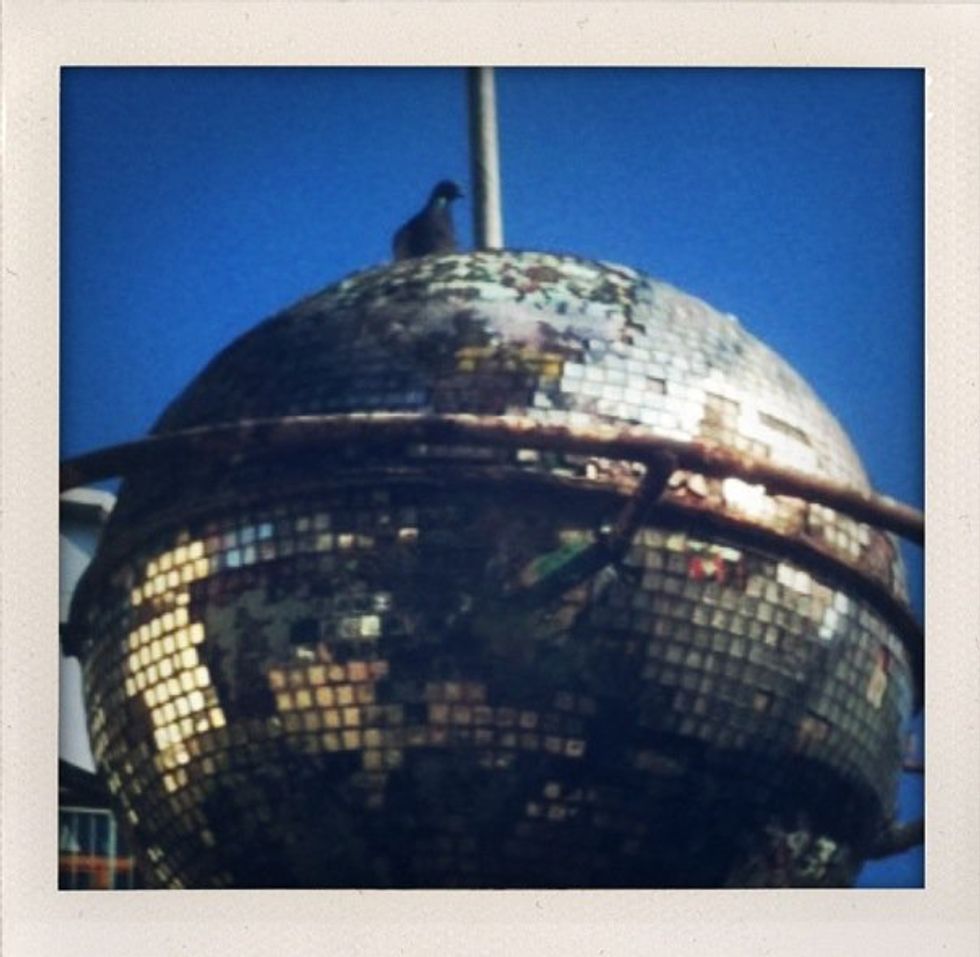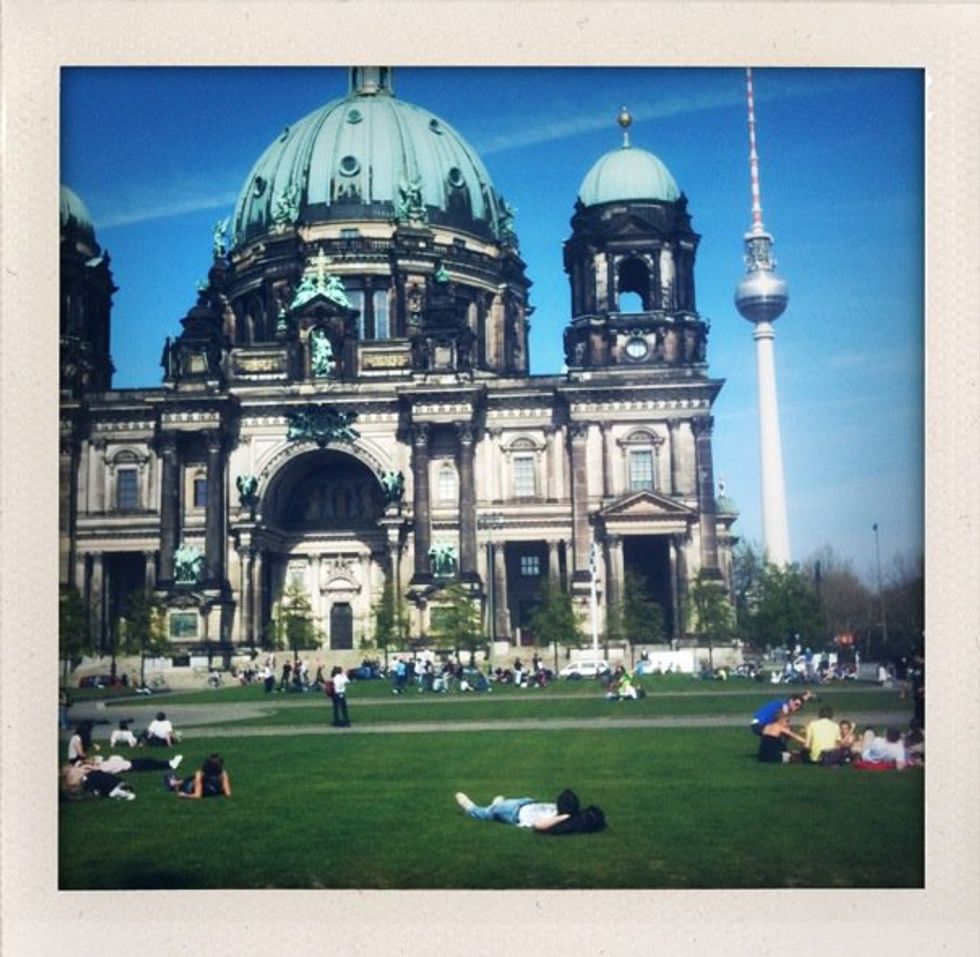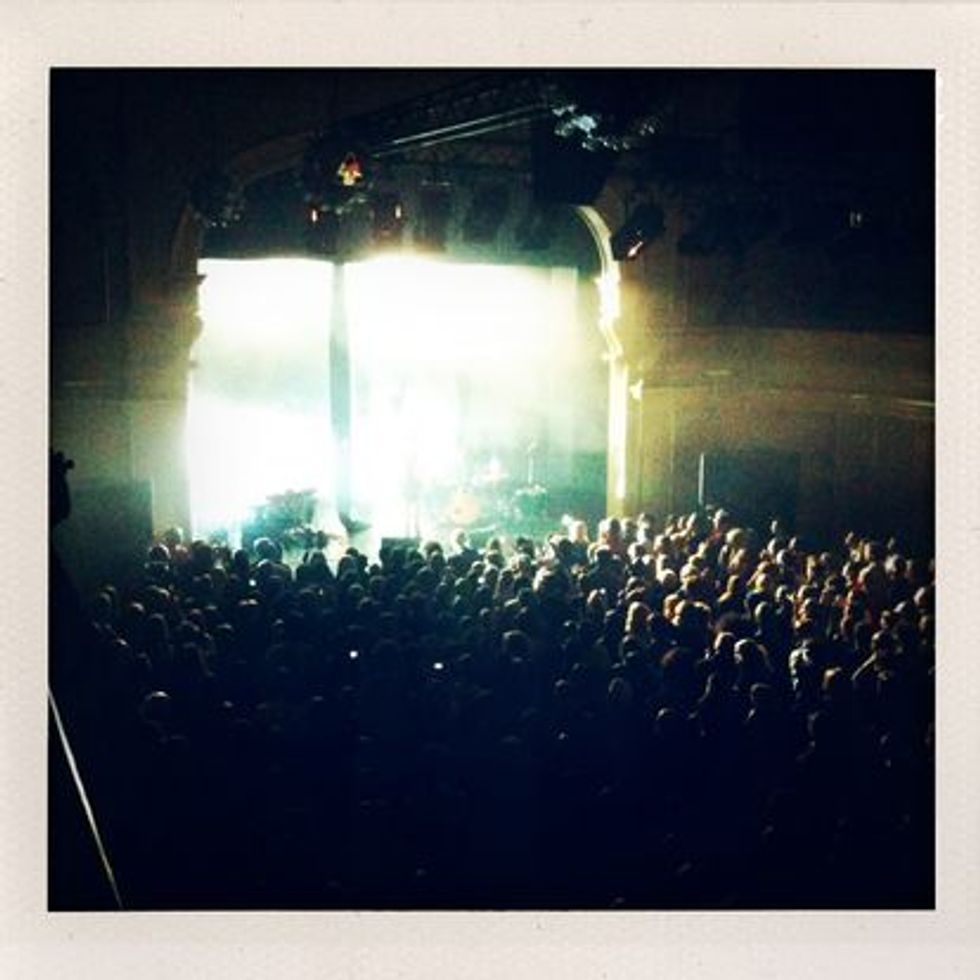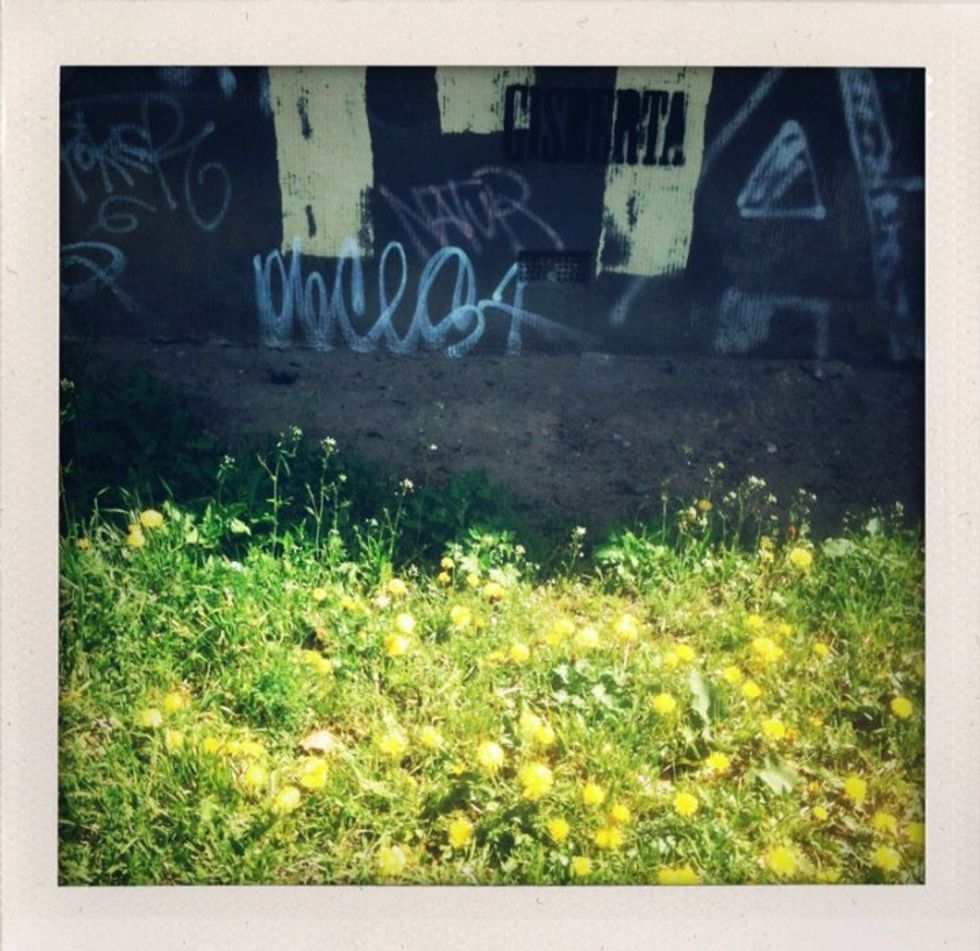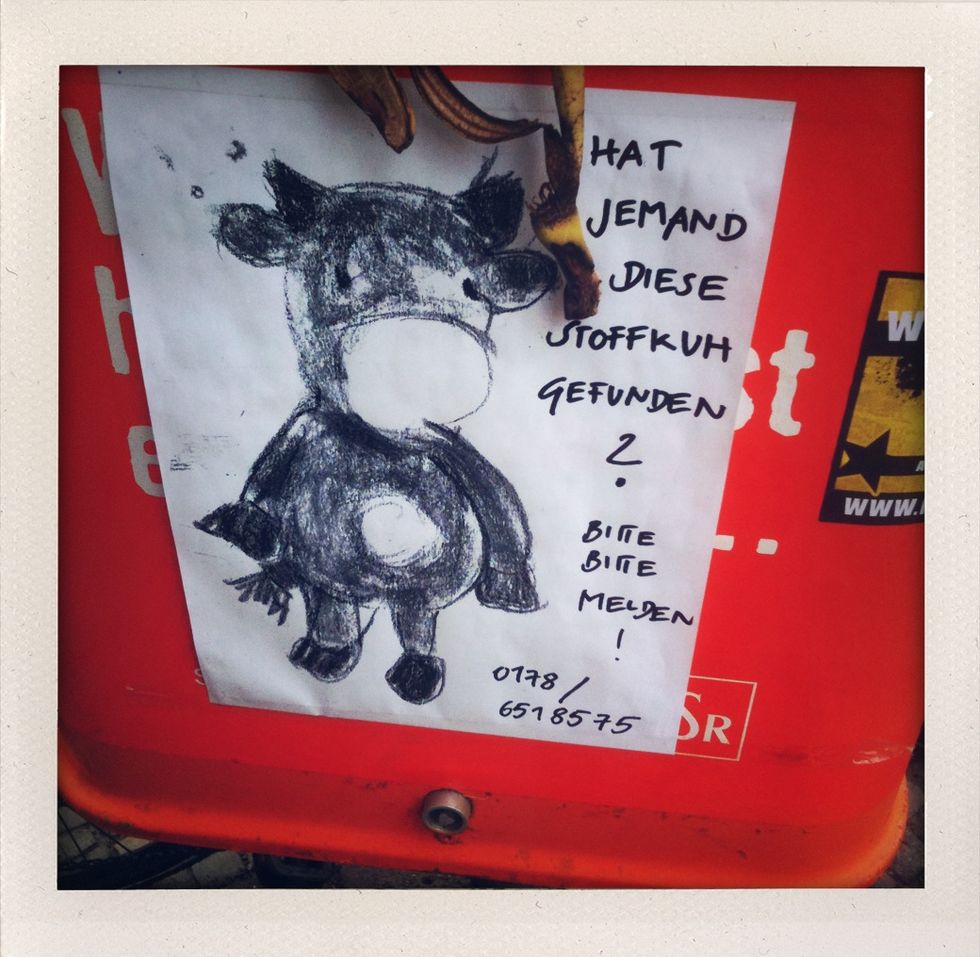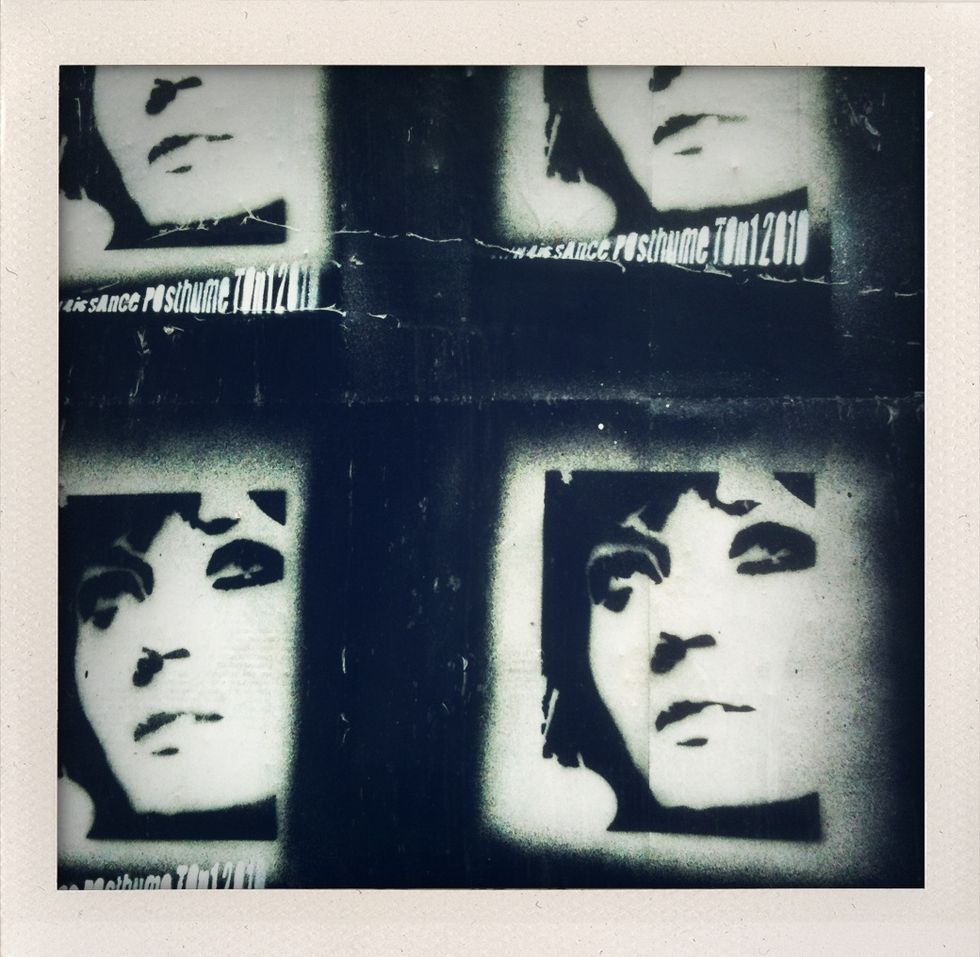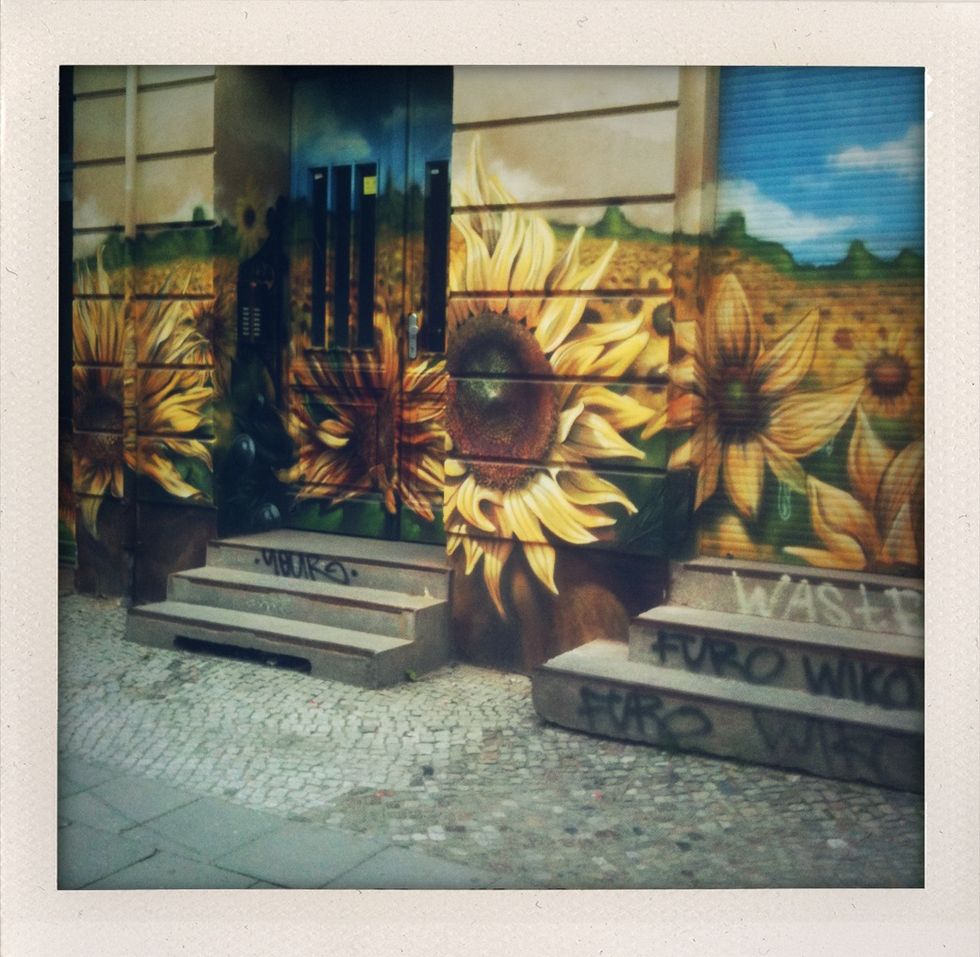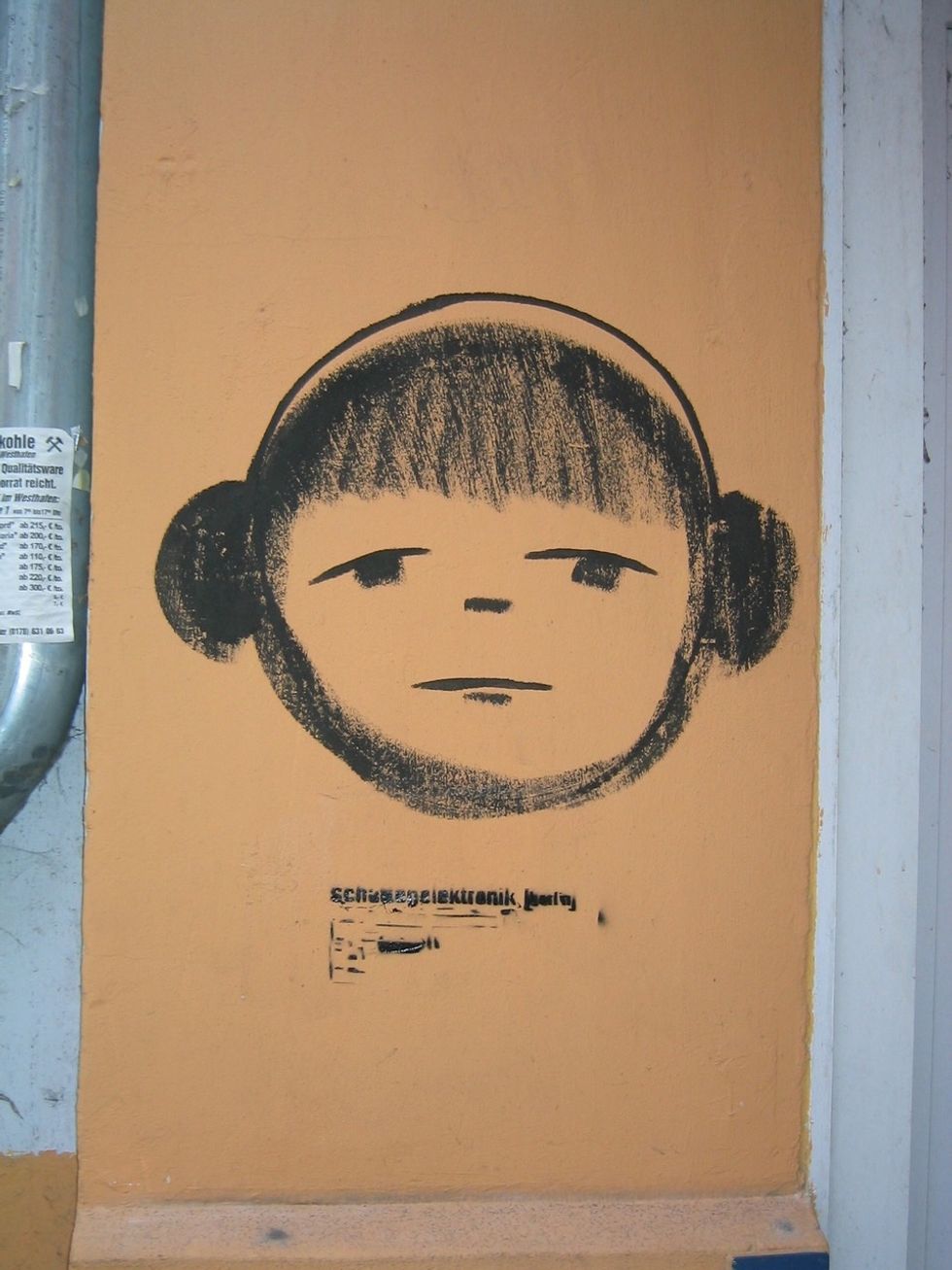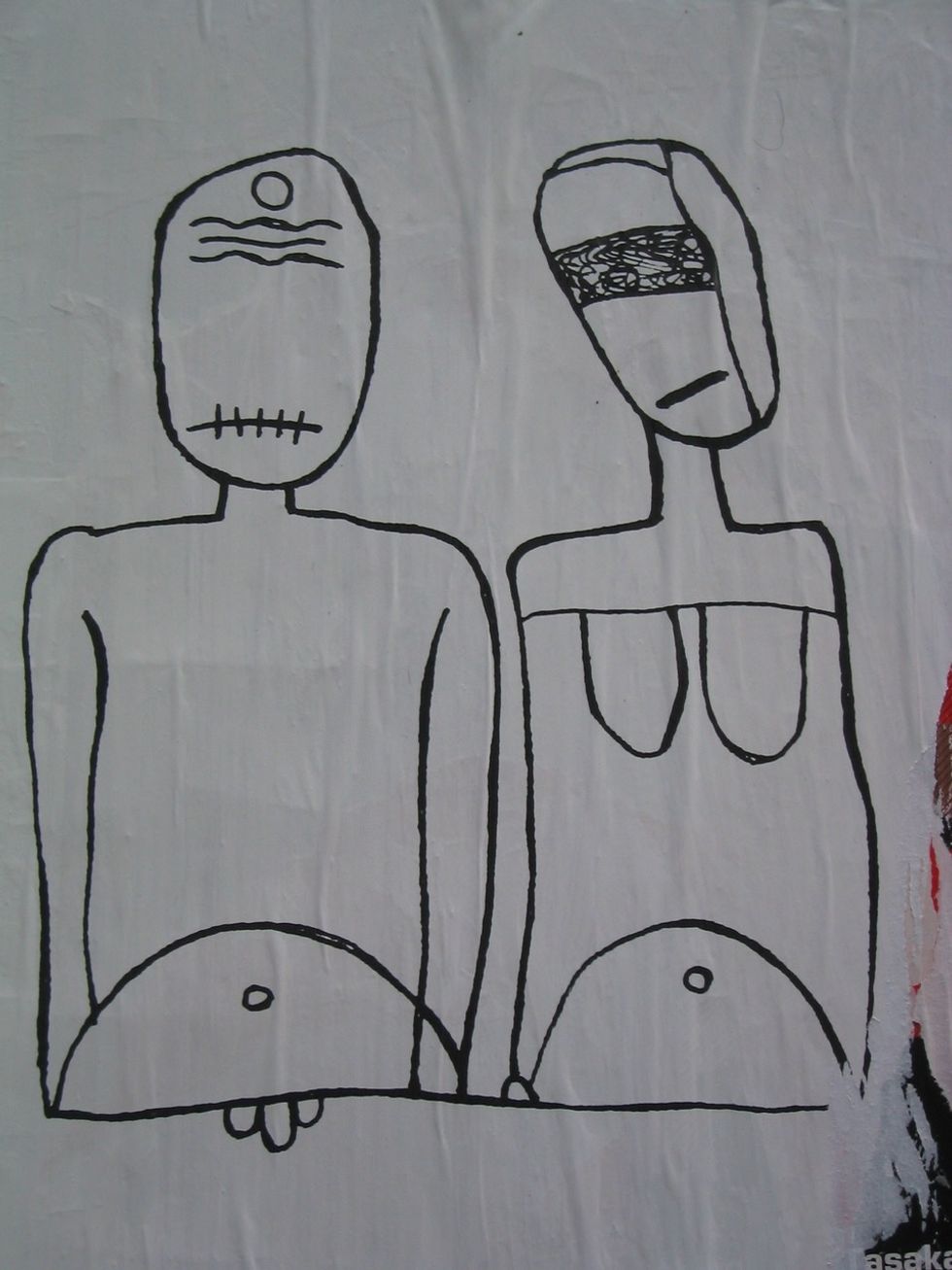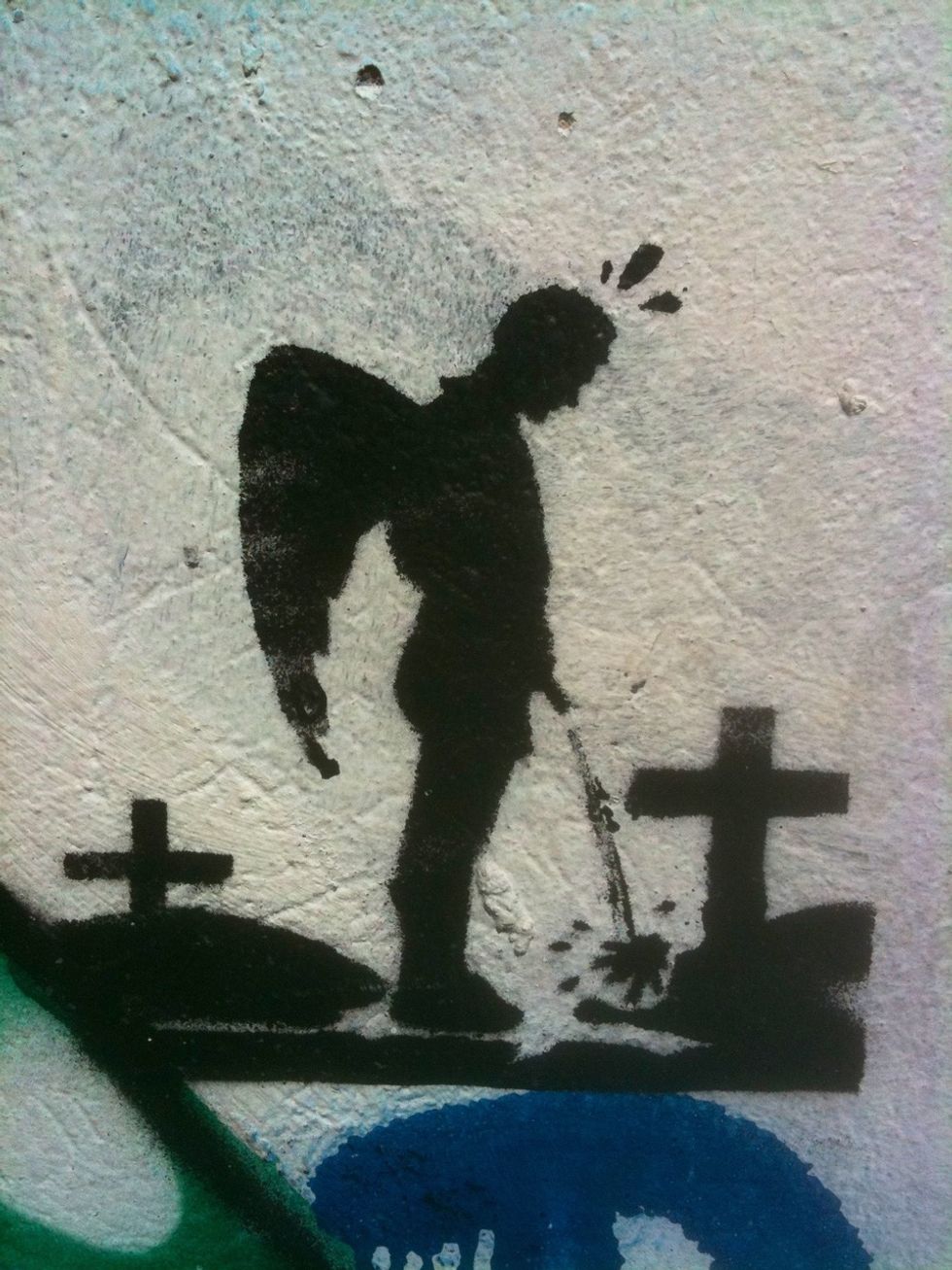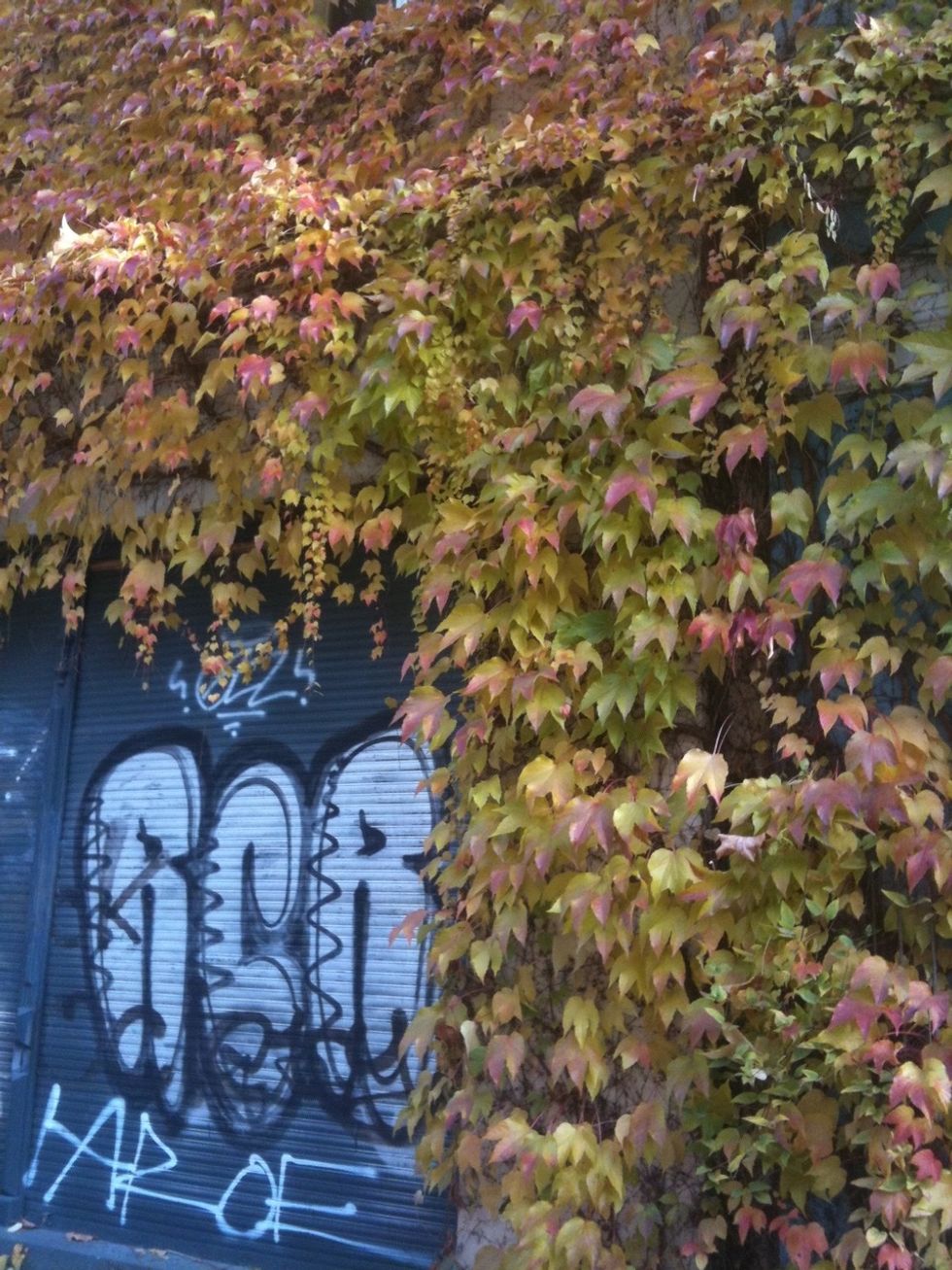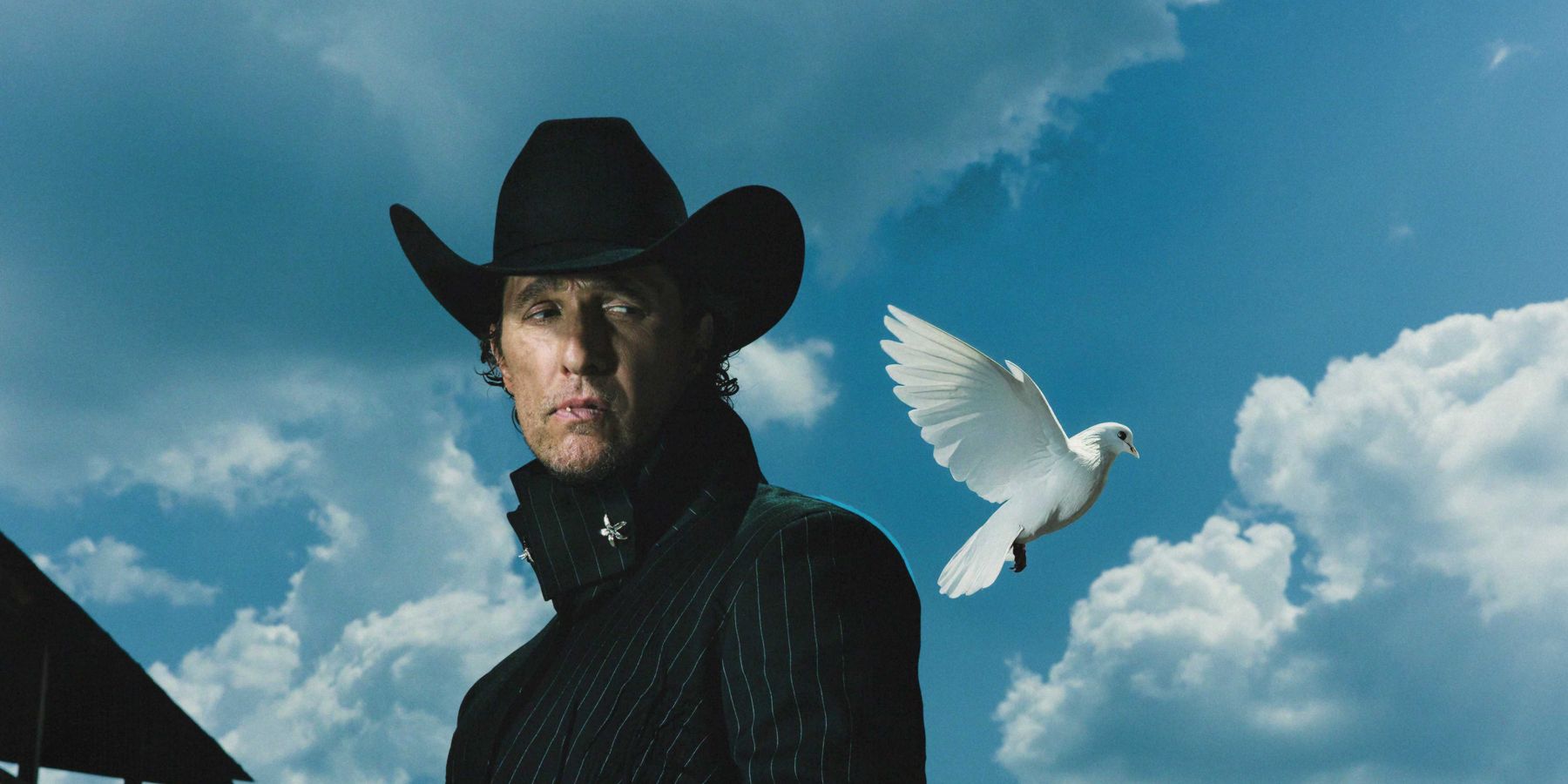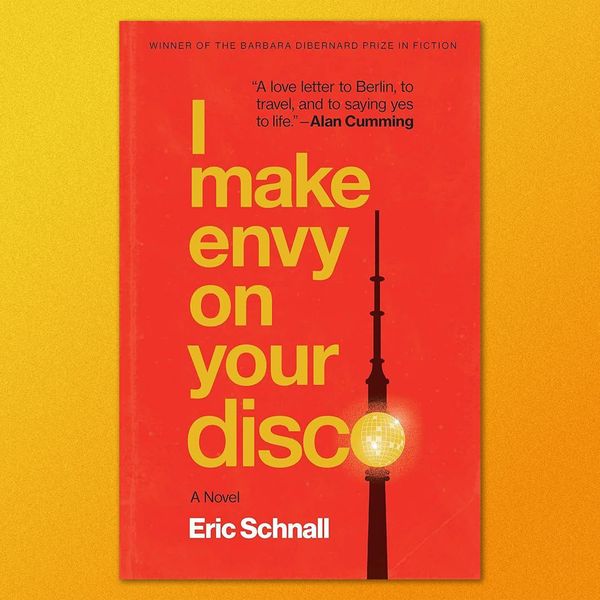
Eric Schnall Takes Us From NYC to Early Aughts Berlin
Oct 07, 2024
Eric Schnall’s first novel, I Make Envy On Your Disco, puts readers smack in the middle of the NYC-to-Berlin pipeline — and it does so with the added trick of time-travel. We’re transported immediately to early-aughts Germany, to a Berlin still very much finding its cultural footing post-Wall.
Sam, the novel’s protagonist and narrator, is doing much the same, albeit on a much more personal level; he’s anxious about his life in NYC (who amongst us isn’t?) and ready (reluctantly, at first) to open himself up the possibilities of connection in a new place. The interweaving of Sam’s discovery of Berlin’s cultural caché alongside his own self-discoveries makes for a story equal parts attentive, introspective, thrilling and queer.
Schnall, who works by day as a producer of theater in NYC, came by the idea for I Make Envy On Your Disco as you might expect: he fell in love with Berlin himself. “I was just completely gobsmacked by the city,” he says. “I wanted to know everything about it.”
Below, check out PAPER’s full chat with Schnall about queer friendship, the book’s title and what’s so lovable about Berlin, alongside photos Schnall captured of the city in the early aughts.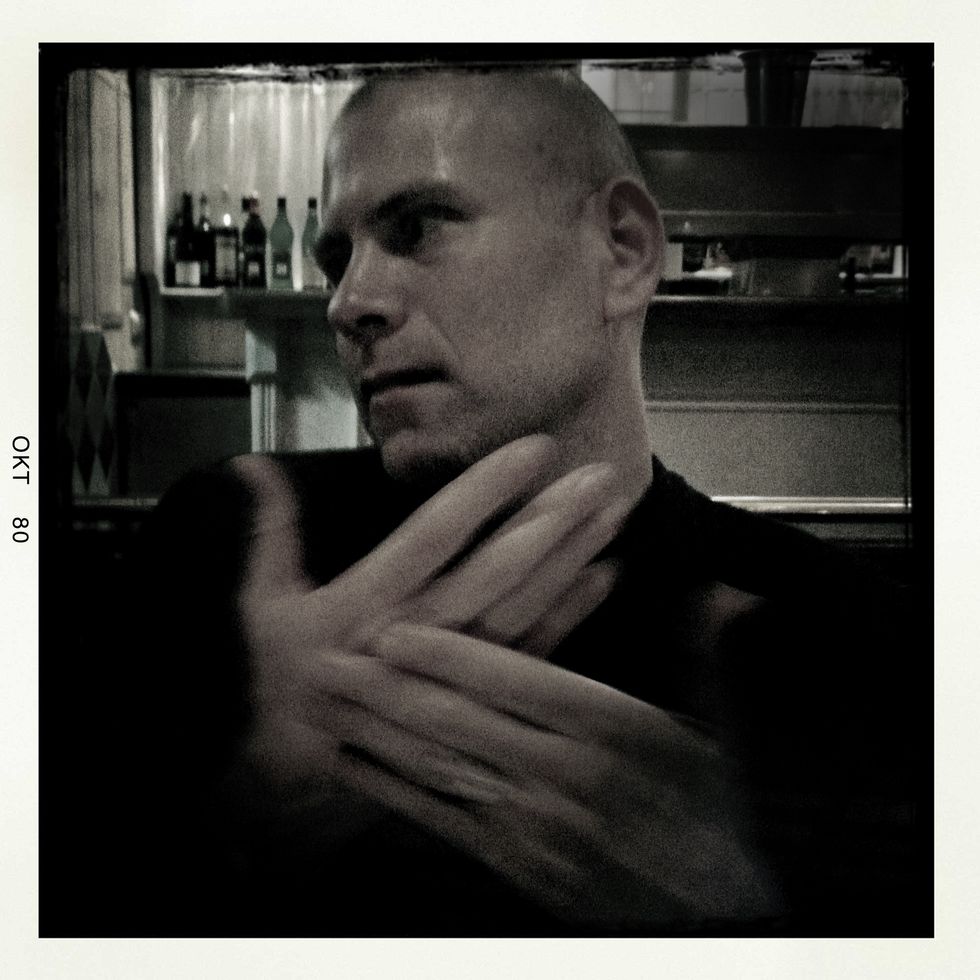
Schnall in Berlin, photographed by Marc Schubring
So tell me a bit about the book’s inception — how did it become a project for you?
I had nearly completed this other book I was working on, and then my partner had this idea to go to Berlin. And it was 2003 so it was way before Berlin became this obvious destination. And we went, and the city blew my mind…as a native New Yorker, I’m not easily stunned by a new city, but Berlin kind of just rocked me. At the time, it was just 15 years or so after the fall [of the Berlin Wall], which is profoundly different than it is now, right? It was very visibly going through a transition period, visible through the construction and reconstruction of the city, that clunky merging of East and West.
There was this phenomenon Ostalgie, which [protagonist] Sam experiences in Berlin, that was very palpable when we were there. I got really fascinated by the city — and also we went out to clubs and got into all sorts of trouble. Then I got back to New York, almost done with this other novel about a boy growing up on the Upper East Side, and the opening chapter to I Make Envy basically just popped out of me. I brought it to a writing workshop I was in and everybody loved it.The two cities, New York and Berlin, stand very much in contrast to each other in the book. New York’s presence is felt, even though the characters aren’t there.
As gritty and exciting as Berlin is, there’s also a sense of quiet and peace and space, because Berlin is so enormous. The contrast between the energy of the two cities is huge, but they also have so much in common.
And so I just followed the project through. My work in theater got in the way, I didn’t have the time, and I didn’t feel I could do both things simultaneously. But the expanse of time between shows meant I could go back to Berlin and work on it again and again.
How long did it end up taking altogether?
The writing probably took me 10 years. Looking back now, I think the amount of time it took me to finish it actually worked in the book’s favor. It’s so rooted in 2003 — I don’t name the year in the book — and I fell in love with that city like you’d fall in love with a partner. I kept going back to Berlin and getting to learn about it, and then I had to unlearn it all, because of Sam, because it was Sam’s first time there, he’s experiencing it as a newbie. I made the decision while working on the book to not really add period details, I wanted everything to feel organic. So the details are a little left-of-center, like some of the music that’s referenced.
Not just things you could’ve Googled, right.
I had to cut some details while editing, too. Like a reference to Berghain — turns out it opened a year after the book takes place. And then a reference to Desperate Housewives, which also premiered the year after.
You’ve obviously been back many times now. Did you have to do any hard research on Berlin, or was it just organic?
I did an enormous amount of research. That was as much for me as it was for the book. I was just completely gobsmacked by the city, I wanted to know everything about it. And also Berlin is enormous.
One of the most interesting facets of the story itself, to me, was watching the various new friendships unfold. Part of me was expecting more romance or sexual friendships. Did you always want these platonic relationships to be a big part of the book, or did you discover that along the way?
This is something that’s been reflected back to me by so many readers. One of my earliest readers, while it was still in draft form, told me he thought it felt very queer to him, becuase it makes an argument for so many different versions of friendships that are not sexual. One of them almost is, because it’s so intense. I didn’t go into the book with any motivation other than wanting to follow a character and capture a moment in Berlin, though.
Something happened in the middle of writing the novel, which is that I was with a friend at a party and we heard somebody utter what would become the title: “I make envy on your disco.” Something about the clunky fusion of German and English, it’s so woven into the fabric of Berlin. And I’ve heard a lot of clunky German-English, but that was just amazing. And it made me smile. My friend and I were obsessed with it, we kept on saying it.
When I made the decision to name my book after that, I had to earn the title in some way and work it into the novel. But that was such a fateful decision. It added a lightness to the second half of the book. It also just enabled me to write in a direction where the characters all intermingled. It took the book in a warmer direction. And now it’s a book about connection, and finding possibilities when you’re at the end of your road, reexamining where you are in life in the context of all different kinds of people.
I’m such a sucker for that kind of storyline. Even TV shows like Felicity. I wrote my German Felicity! I’ve just always loved these stories about young people figuring out their shit, stumbling along and finding meaning through each other.
I am curious to hear more about the title. It comes up at the end, too, in a very ambiguous way. How do you see it playing into the context of the novel?
I actually wrote the ending before I had written the middle. It just came out of me, which was so weird and wonderful. I don’t want to put a literal meaning on the title, but basically everyone in the novel is thinking the grass is greener for everybody else. All of the characters are in this time in their lives where they’re very covetous of what they don’t have. We all oftentimes want something else. And I hope what’s nice about the book is that it winds up with the characters much more in the moment, appreciating the moment they’re in.
And also, the title is a bit incomprehensible as a phrase, and there are so many crossed wires like that in the book. The characters butt heads, they don’t understand each other sometimes, they’re being corrected.
Photos courtesy of Eric Schnall
From Your Site Articles
Related Articles Around the Web
MORE ON PAPER
ICONOS: Pepe Aguilar, El Oficio del Tiempo, la Voz del Silencio y el Peso del Legado
Español
Jan 19, 2026
Entertainment
Cynthia Erivo in Full Bloom
Photography by David LaChapelle / Story by Joan Summers / Styling by Jason Bolden / Makeup by Joanna Simkim / Nails by Shea Osei
Photography by David LaChapelle / Story by Joan Summers / Styling by Jason Bolden / Makeup by Joanna Simkim / Nails by Shea Osei
01 December
Entertainment
Rami Malek Is Certifiably Unserious
Story by Joan Summers / Photography by Adam Powell
Story by Joan Summers / Photography by Adam Powell
14 November
Music
Janelle Monáe, HalloQueen
Story by Ivan Guzman / Photography by Pol Kurucz/ Styling by Alexandra Mandelkorn/ Hair by Nikki Nelms/ Makeup by Sasha Glasser/ Nails by Juan Alvear/ Set design by Krystall Schott
Story by Ivan Guzman / Photography by Pol Kurucz/ Styling by Alexandra Mandelkorn/ Hair by Nikki Nelms/ Makeup by Sasha Glasser/ Nails by Juan Alvear/ Set design by Krystall Schott
27 October
Music
You Don’t Move Cardi B
Story by Erica Campbell / Photography by Jora Frantzis / Styling by Kollin Carter/ Hair by Tokyo Stylez/ Makeup by Erika LaPearl/ Nails by Coca Nguyen/ Set design by Allegra Peyton
Story by Erica Campbell / Photography by Jora Frantzis / Styling by Kollin Carter/ Hair by Tokyo Stylez/ Makeup by Erika LaPearl/ Nails by Coca Nguyen/ Set design by Allegra Peyton
14 October
Entertainment
Matthew McConaughey Found His Rhythm
Story by Joan Summers / Photography by Greg Swales / Styling by Angelina Cantu / Grooming by Kara Yoshimoto Bua
Story by Joan Summers / Photography by Greg Swales / Styling by Angelina Cantu / Grooming by Kara Yoshimoto Bua
30 September
